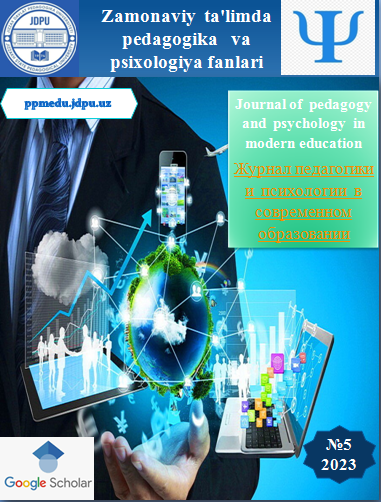Аннотация
Psychology's profound influence on sports performance and athlete well-being underscores its pivotal role in sports contexts. This article aims to explore the dynamic interplay between psychological theory and practical application within the realm of sports. The objective is to investigate how established psychological theories are translated into actionable strategies to enhance athlete training, motivation, and overall performance. To achieve this aim, a comprehensive review of key psychological theories, such as self-determination theory, cognitive appraisal theory, and the zone of proximal development, is conducted. The review involves analyzing the foundational principles of these theories and their implications for athlete development. The results of this analysis highlight the multifaceted ways in which psychology influences athlete training and performance. From fostering intrinsic motivation to optimizing stress management, psychological theories offer valuable insights that can be integrated into training programs. The synthesis of theory and practice yields enhanced athlete outcomes, as demonstrated by the case studies. This article underscores the symbiotic relationship between psychological theory and its application in the sporting arena. By bridging the gap between theoretical insights and practical strategies, sports psychology contributes to the holistic development of athletes. This exploration emphasizes the significance of integrating psychological principles into athlete training and underscores the continued importance of research in advancing the field of psychology in sport.
Как цитировать
Библиографические ссылки
Thomas, J. D., Ross, S. M., & Sapienza, J. R. (2022). Recommendations for Effective Coaching Practices: A Case Study using the Multidimensional Model of Leadership as a Guiding, Journal of anthropology in sport and Physical education.
http://www.jaspe.ac.me/clanci/5_Thomas%20-%20manuscript.pdf
Deci, E. L., & Ryan, R. M. (1985). Intrinsic motivation and self-determination in human behavior. Springer.
https://link.springer.com/book/10.1007/978-1-4899-2271-7
Gonzalez, L., & Williams, R. (2020). The Dynamics of Group Cohesion in Sports Teams. International Journal of Sport Psychology, 51(6), 562-578.
Macnamara, A., Button, A., & Collins, D. (2010). The Role of Psychological Characteristics in Facilitating the Pathway to Elite Performance Part 1: Identifying Mental Skills and Behaviors. Sport Psychologist, 24(1), 52-73. DOI: 10.1123/tsp.24.1.52 https://www.researchgate.net/publication/281263725_The_Role_of_Psychological_Characteristics_in_Facilitating_the_Pathway_to_Elite_Performance_Part_1_Identifying_Mental_Skills_and_Beh
Jones MI & Lavallee D (2009) Exploring the life skills needs of British adolescent athletes, Psychology of Sport and Exercise, 10 (1), pp. 159-167. https://dspace.stir.ac.uk/bitstream/1893/7664/1/PSE_2009.pdf
Lazarus, R. S., & Folkman, S. (1984). Stress, appraisal, and coping. Springer.
Locke, E. A., & Latham, G. P. (1990). A theory of goal setting & task performance. Prentice-Hall.
https://psycnet.apa.org/record/1990-97846-000
Mellalieu, S. D., & Hanton, S. (2009). Advances in applied sport psychology: A review. Routledge.
Moran, A. (2004). Sport and exercise psychology: A critical introduction. Psychology Press. http://155.0.32.9:8080/jspui/bitstream/123456789/1150/1/Sport%20And%20Exercise%20Psychology%20%28%20PDFDrive%20%29.pdf
Scanlan, T. K., Carpenter, P. J., Simons, J. P., Schmidt, G. W., & Keeler, B. (1993). An introduction to the sport commitment model. Journal of Sport & Exercise Psychology, 15(1), 1-15.
https://journals.humankinetics.com/view/journals/jsep/15/1/article-p1.xml
Smith, R. E., Smoll, F. L., & Cumming, S. (2007). Effects of a Motivational Climate Intervention for Coaches on Young Athletes’ Sport Performance Anxiety. Journal of Sport and Exercise Psychology, 29(1), 39-59. DOI: 10.1123/jsep.29.1.
Brustad, R. J., & Ritter, M. (1997). Applying Social Psychological Perspectives to the Sport Psychology Consulting Process. Human Kinetics Publishers, Inc.
Vygotsky, L. S. (1978). Mind in society: The development of higher psychological processes. Harvard University Press.
Weinberg, R. S., & Gould, D. (2015). Foundations of sport and exercise psychology. HumanKinetics. https://www.scirp.org/(S(czeh2tfqw2orz553k1w0r45))/reference/referencespapers.aspx?referenceid=3021167
Авторы
Asya Kolesyanova
Veritas University college
Ildar Kolesyanov
Ключевые слова:
Athlete performance, psychological theory, practical application, athlete training, motivation, sports psychology, self-determination theory, cognitive appraisal theoryВыпуск
Раздел: Articles

